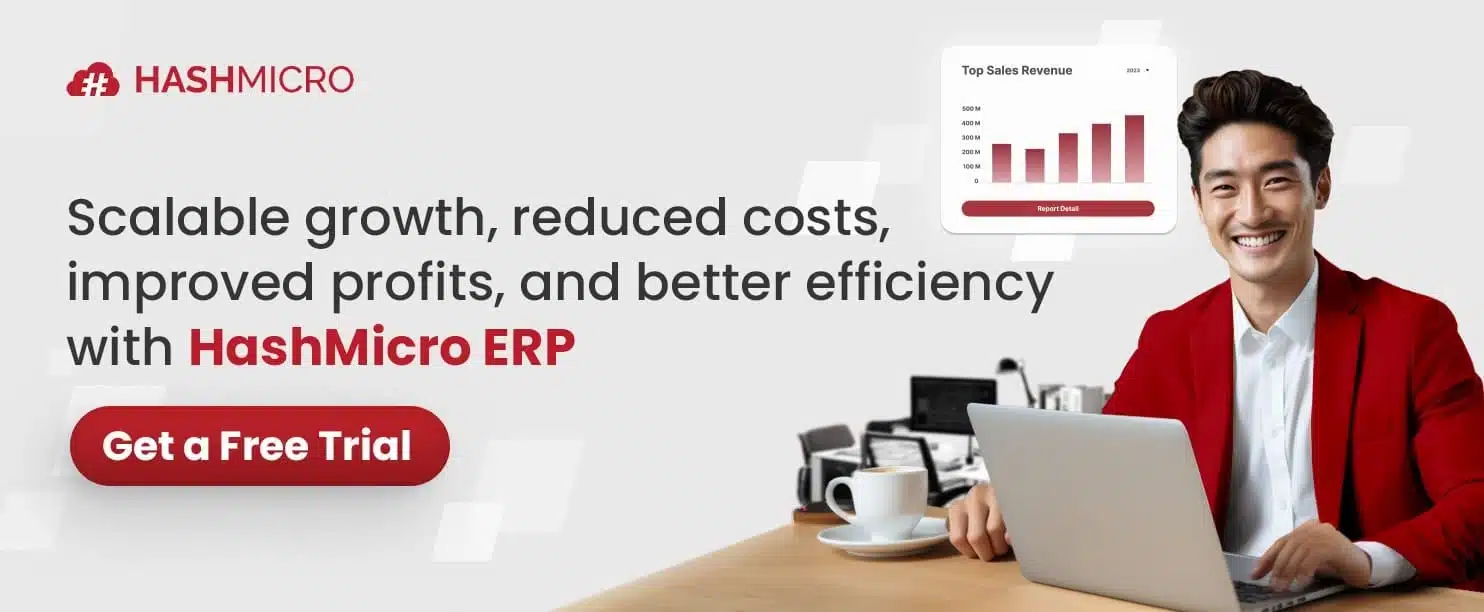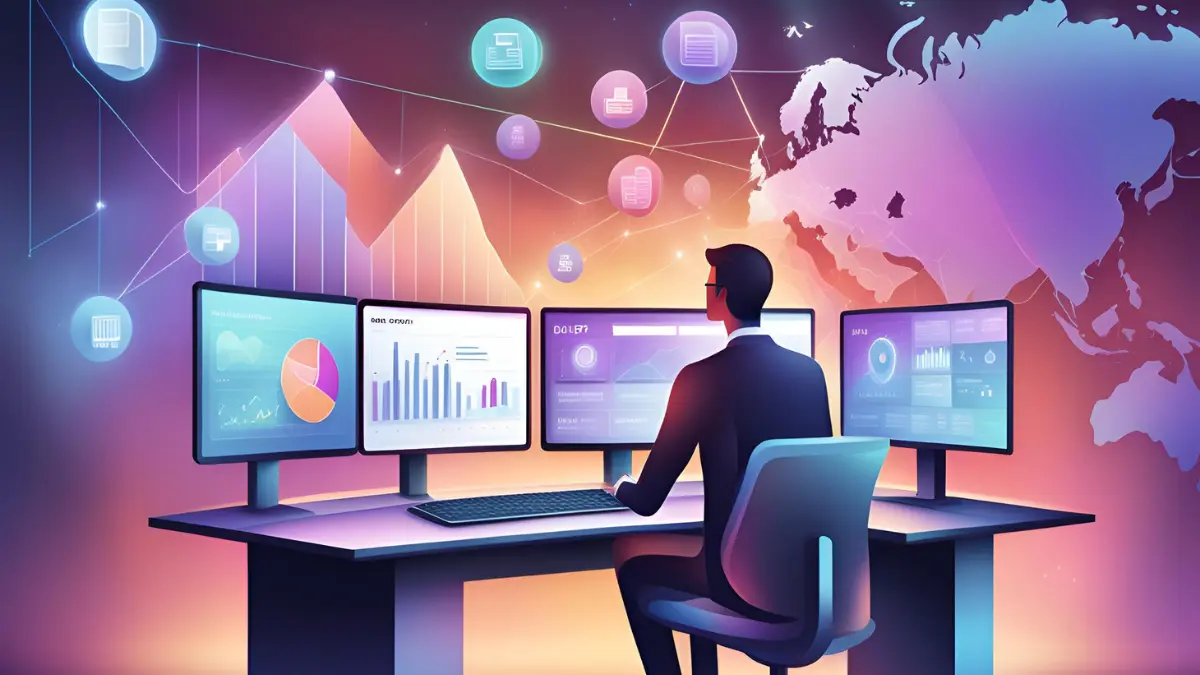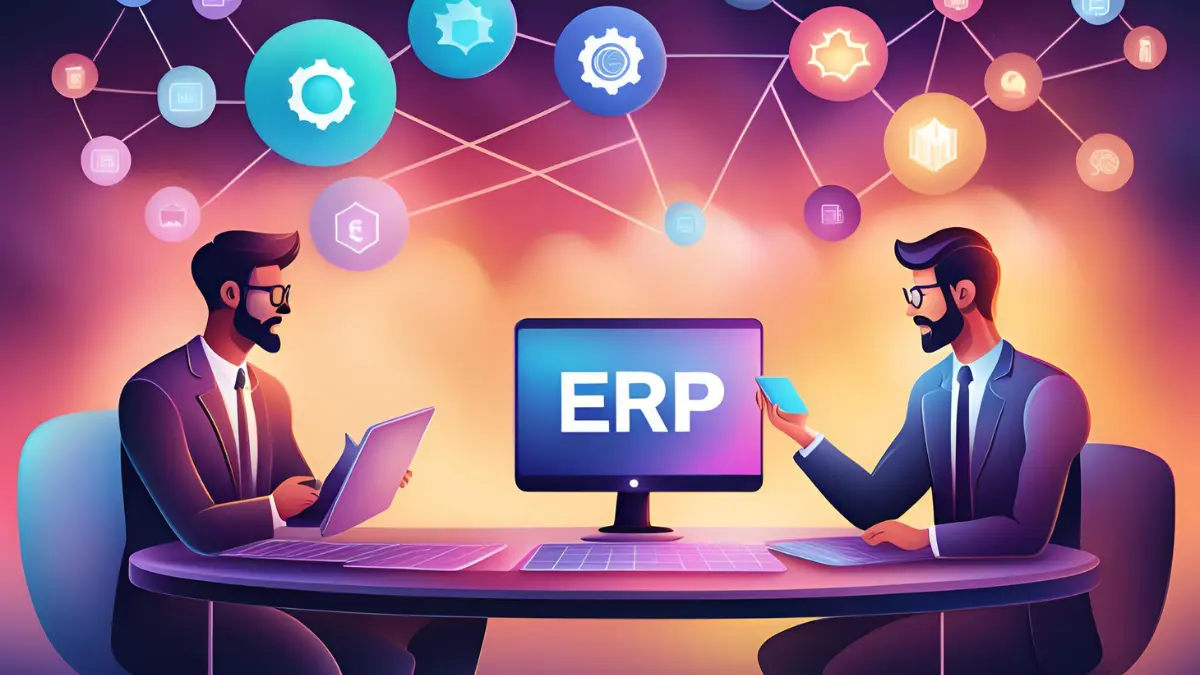In an evolving business landscape, companies continuously seek tools to drive efficiency and accelerate growth. Two of the most widely used systems are ERP (Enterprise Resource Planning) and CRM (Customer Relationship Management), but understanding their key differences can be challenging.
ERP software integration all aspects of a company’s operations, from finance and supply chain management to human resources and production. On the other hand, CRM is designed to manage customer interactions, enhancing sales processes and customer service.
Both systems are crucial for businesses aiming to stay competitive, but selecting the right one or integrating both can dramatically improve your company’s efficiency and customer satisfaction. Continue reading to explore how these systems can benefit your business and help you make an informed decision.

Key Takeaways
|
What is ERP?
Enterprise Resource Planning (ERP) is a software system integrating key business functions such as finance, inventory management, sales, and HR into a single platform. By connecting different departments, ERP enables real-time data sharing and improves decision-making.
When discussing ERP vs CRM, ERP is more focused on internal operations. It automates routine tasks, reduces errors, and provides better insights into processes. This leads to improved efficiency, optimized resource use, and the ability to respond quickly to market changes.
What is CRM?
Customer Relationship Management (CRM) is a software system designed to help businesses manage interactions with current and potential customers. It stores detailed information such as contact details, communication history, and customer preferences in one centralized location.
CRM enables businesses to track customer behavior, analyze data, and personalize communication, enhancing customer satisfaction and loyalty using loyalty program software.
By improving the management of customer relationships, CRM helps companies increase sales, streamline processes, and deliver a better overall customer experience, contributing to long-term business success.
ERP vs CRM explained: Key benefits of ERP
Enterprise Resource Planning (ERP) systems and business intelligence software are powerful tools that help businesses streamline operations, improve efficiency, and enhance decision-making. In ERP vs CRM comparisons, ERP stands out for its ability to unify all departments into a single system.
1. Centralized data management
An ERP system serves as a centralized hub for all business data, integrating departments like finance, HR, supply chain, and sales into one platform.
This eliminates the issue of data silos where information is trapped within individual departments, making cross-department communication smoother and more reliable.
With real-time access to unified data, decision-makers can trust the accuracy and consistency of the information they rely on.
2. Improved operational efficiency
Automation is a hallmark of ERP systems, replacing repetitive manual tasks with streamlined workflows. For example, inventory management, order processing, and payroll operations can be automated to reduce errors and save time.
This not only improves overall efficiency but also allows employees to focus on higher-value tasks, such as strategic planning and innovation.
3. Cost savings
While ERP implementation requires an upfront investment, the long-term cost savings are significant. Businesses can save on operational costs by reducing manual labor, minimizing errors, and optimizing resource allocation.
Additionally, having a single system to manage multiple processes can eliminate the need for maintaining multiple standalone software tools, further reducing expenses.
4. Enhanced decision-making
ERP systems come with robust analytics and reporting tools, offering real-time insights into various aspects of the business. Customizable dashboards and data visualization features make it easier to track key performance indicators (KPIs), identify trends, and forecast future outcomes.
These insights empower business leaders to make informed decisions quickly and with confidence.
ERP vs CRM explained: Key advantages of CRM

Customer Relationship Management (CRM) systems are essential tools that help businesses build stronger relationships with customers, streamline operations, and drive growth. In ERP vs CRM comparisons, CRM proves essential for companies focused on customer-facing operations.
- Improved customer relationships: CRM systems enable businesses to maintain a complete record of customer interactions, preferences, and history. By understanding customers better, businesses can provide personalized service and build stronger, long-lasting relationships. This leads to increased customer satisfaction and loyalty.
- Enhanced sales performance: With tools to manage leads, track opportunities, and analyze sales data, CRM systems empower sales teams to work more effectively. Automated reminders and workflows help sales representatives stay on top of follow-ups, ensuring no potential opportunities are missed.
- Data driven insights: CRM platforms include analytics and reporting tools that provide valuable insights into customer behavior, preferences, and purchasing patterns. Businesses can use this data to make informed decisions, identify opportunities, and address challenges effectively.
If you’re wondering whether all CRM have the same features and capabilities, the answer is: they don’t. So, if you want to know which CRM software does what, and to make sure that you choose the most ideal one to your business, head to our recommendation of the best sales management software in Malaysia.
The Difference between ERP vs CRM
Understanding the difference between ERP vs CRM is crucial, as ERP history highlights how these systems evolved to manage enterprise-wide operations, while CRM focuses on customer relationships. The following table clearly compares the key differences between ERP and CRM across various aspects:
| Aspect | ERP | CRM |
| Purpose | Streamlines and integrates internal business processes. | Focuses on managing and improving customer relationships. |
| Key functionality | Finance, inventory, supply chain, HR, manufacturing, and procurement. | Sales tracking, customer support, lead management, and marketing automation. |
| Focus area | Operational efficiency and cost reduction. | Customer satisfaction and revenue growth. |
| Scalability | Suitable for businesses looking to manage overall operations. | Ideal for businesses aiming to grow their customer base. |
| Implementation complexity | More complex and requires organization-wide integration. | Easier to implement and focuses on specific customer-centric functions. |
How ERP and CRM Work Together
While ERP vs CRM highlights their differences, these systems can also complement each other when integrated. ERP serves as the operational backbone, managing resources, finance, and supply chain, while CRM focuses on customer-facing activities such as sales and service.
When connected, ERP and CRM create a unified flow of information across the business. For example, sales teams can access customer order histories from ERP directly in CRM, allowing them to personalize offers and improve upselling opportunities. This level of visibility ensures smoother communication between teams.
The integration also supports better decision-making. By combining operational data from ERP with customer insights from CRM, businesses gain a complete view of performance and customer behavior. This leads to improved efficiency, stronger customer relationships, and faster, more informed strategies.
Conclusion
When comparing ERP vs CRM, the choice depends on business priorities. ERP systems, such as ERP software Malaysia, are particularly effective in optimizing operations, enhancing communication, and delivering precise data insights. In contrast, CRM systems strengthen customer relationships, increase sales, and offer detailed customer insights.
Moreover, it is important to recognize that ERP and CRM systems can be integrated to create a unified solution. By combining both, businesses can benefit from improved data visibility, smoother communication across departments, and more efficient business processes.
Interested in discovering how HashMicro’s ERP and CRM software can transform your business? Request a free demo today and experience the power of our all-in-one management software firsthand.

FAQ ERP vs CRM
-
What is ERP vs CRM vs SCM?
Enterprise resource planning (ERP) streamlines internal processes, human capital management (HCM) prioritizes workforce optimization, customer relationship management (CRM) focuses on enhancing client interactions, and supply chain management (SCM) ensures a seamless flow from production to delivery.
-
Is ERP centralized or decentralized?
ERP is a centralized systems which is nothing but Enterprise resource planning. ERP’s comes as better solution for business which will address almost all the issues that are faced in decentralized business scenarios.
-
Can ERP replace CRM?
Many ERPs contain CRM features, but CRMs do not contain ERP features or handle transactional data. Both CRM and ERP are critical components of a successful business IT system, and one cannot replace the other.































